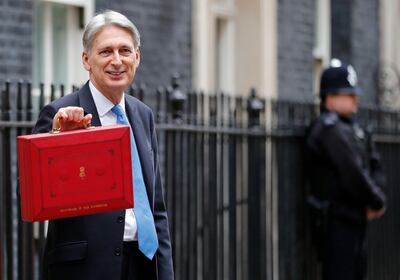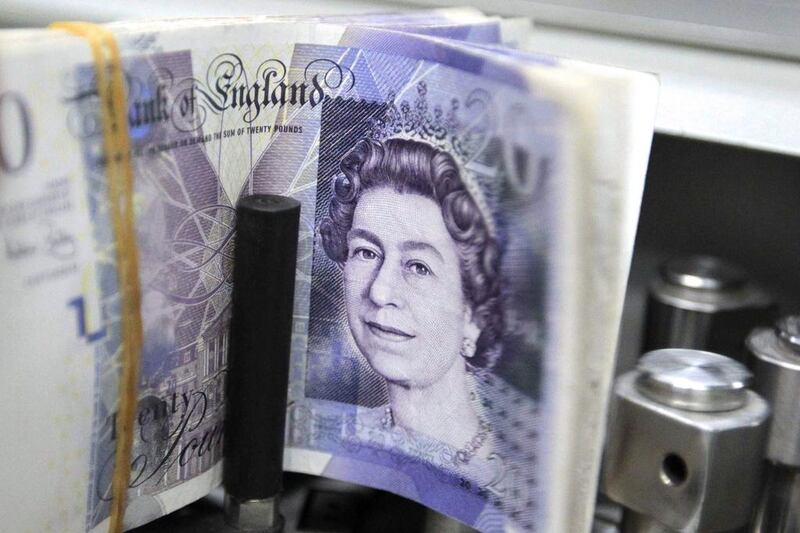“VAT is a simple tax...” said Anthony Barber, Britain’s then Chancellor, on the introduction of Value Added Tax in the UK on 1 April 1973.
Forty-four years ago, that was probably true. VAT in the UK started off as a simple 10 per cent tax which was levied on most goods bought from a business.
However, the tax has since swollen in size and complexity, with different rates and a range of exemptions.
Brexit adds another layer of complication as VAT is a European Union legislated tax, so there are expected to be big changes to it once the UK leaves the bloc. Indeed, a main reason why Britain introduced the tax in the first place was that it was a condition of joining the European Economic Community.
The UK’s tax office – Her Majesty’s Revenue and Customs – defines VAT as “a tax that's charged on most goods and services that VAT-registered businesses provide in the UK”.
There are three rates of VAT: the standard 20 per cent; a reduced rate of 5 per cent, which applies to items such as children’s seats; and zero rate (applied to basic food items, books, newspapers, young children’s clothing, and most public transport).
There are also exempt items, including lottery tickets and stamps.
The different rates have baffled consumers for years. For example, VAT is charged at 20 per cent on gingerbread men with chocolate trousers, but if the gingerbread man is decorated with “no more than a couple of dots for the eyes”, it is exempt.
Quirks like these can cost shoppers dear, and mean businesses spend much of their time navigating an inconsistent list of exemptions.
_______________
Read more:
[ Businesses have yet to register for VAT, Federal Tax Authority says ]
[ Dubai retailers fined for adding VAT to prices ahead of roll-out ]
[ Business Extra podcast: Everything we know about VAT - part 2 ]
_______________
Faced with mounting pressure to simplify the system, Chancellor Philip Hammond ordered a year-long investigation into the UK’s VAT rules.
The Office of Tax Simplification produced its initial report in November, which called for “a comprehensive review” of VAT.
The report admitted that what was intended as a simple tax had become “highly complex” and “has not kept pace with changes in society”.
But the work to simplify the system is still ongoing, and that means for now, British consumers still need to tell their Jaffa cakes (not taxed) from their chocolate-covered biscuits (taxed at 20 per cent).
The report was also intended to kick-start a debate about the registration threshold.
Currently, businesses in the UK must register for VAT if their taxable turnover goes over the £85,000 threshold.
While that enables many small businesses to stay out of the VAT system, it also has the negative effect of discouraging many growing firms from expanding beyond this point.
There had been fears that Mr Hammond would reduce the VAT turnover threshold in his Autumn Budget, forcing more businesses to start charging and administering the tax. But he refrained from doing so, promising to keep it at £85,000 “for the next two years”.

Mike Cherry, national chairman of the Federation of Small Businesses, told The National that the decision was “a great relief to the million or more entrepreneurs who could have been dragged into this part of the tax system – and all the extra bureaucracy which goes with it”.
Mr Cherry welcomed the initial findings of the OTS report, but said that more needed to be done to simplify the VAT system.
“Many small businesses find the VAT system very complex and time-consuming,” he said.
“A recent survey of our members found that a VAT-paying small business owner spends an average of six days a year working on the administration required for their tax documentation. This is time which could be much better spent growing their business.”
The OTS report says Brexit presents an opportunity to “clarify and simplify” areas of VAT.
What Brexit is unlikely to do, however, is result in the taxation being abolished altogether.
VAT is the second-largest source of tax revenue in Britain, after income tax. Around £124 billion of VAT was collected by HMRC in the 2016-17 tax year, representing 22 per cent of all taxes received.
That’s a revenue stream that the government won’t be bidding farewell to anytime soon.
VAT also generates far more revenue for the UK government than any other form of indirect taxation. For instance, the combined revenue from various “sin taxes”, such as alcohol and tobacco duties, came to just £20 billion in the same period.
VAT is also generally more broad-based than other forms of indirect taxation, and involves a trail of invoices that in theory helps improve tax compliance and enforcement.
However, anti-tax lobbyists argue that VAT is “regressive”, as it hits the poorest families hardest. Everyone pays the same tax rate for the same items, with no consideration of one’s ability to pay. Research has consistently proven that the less well-off pay a higher share of their income in VAT than the rich.
The so-called “tampon tax” adds another layer of controversy. The levy means women’s sanitary products are subject to 5 per cent VAT, despite being viewed by many as a basic necessity.
The issue even became embroiled with Brexit, as some Eurosceptics recommended women vote Leave in the EU referendum order to escape the tampon tax.
Finally, the Conservative government pledged to abolish the tampon tax, with the legislation to eliminate it expected to go into effect in April 2018.
Most recently, VAT has been in the spotlight as British MPs accused online giants such as Amazon and eBay of profiting from VAT evasion.
According to the UK’s National Audit Office, the government lost up to £1.5 billion last year from VAT evasion by overseas online retailers.
HMRC also came under fire for its poor record against online sellers violating VAT rules.
Mr Cherry said: “Recently concerns have been raised about VAT evasion by traders outside of the EU selling items into the UK via online market places.”
He added: “No business, wherever it is in the world, should be able to gain competitive advantage by dodging UK taxes.”





